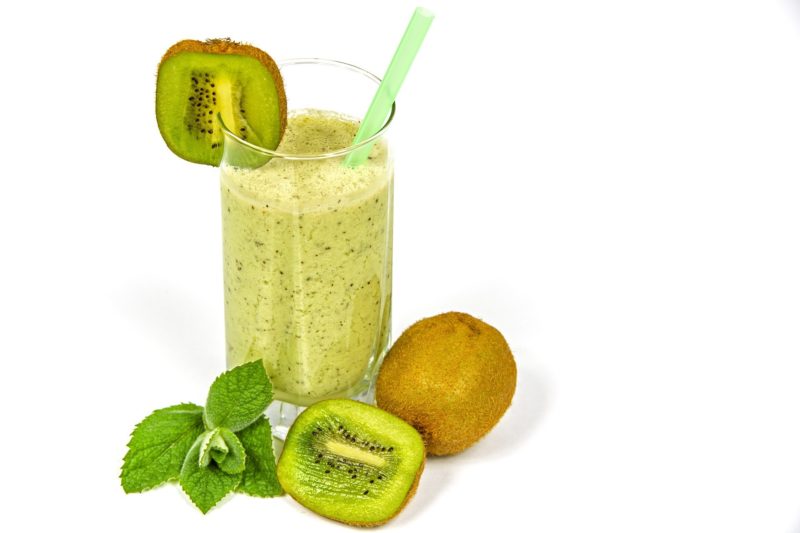Antwort Is juicing actually worth it? Weitere Antworten – How long does it take to see the benefits of juicing
It usually takes about three weeks to totally FEEL benefits as that's how long it takes cells to turnover in the body. I was told this by a doctor. whenever you are changing to a new diet or even skincare routine you need to stick with it for three weeks at least.How To Make The Perfect Juice
- Start with your base. (Use ingredients that are easy to digest and have a high water content)
- Add in some greens. (This adds more nutrients)
- More veggies, please. (Use vegetables that are naturally sweet)
- Natural sweetener. (Only add a small amount, if any)
- Detoxifying extras.
Juicing is a natural way to detoxify your body and eliminate harmful toxins that can cause skin problems such as blackheads, whiteheads, redness, irritation, and dryness. The antioxidants in fruits and vegetables help to neutralize free radicals and protect your skin from oxidative damage.
How do you make juice in a juicer : Starting with the ginger. Once the ginger has processed add the oranges. And then the carrots. We recommend gradually adding the ingredients to the feed. Chute.
What are 5 cons of juicing
The Cons of Juicing
- May Spike Blood Sugar Levels. Even when you juice your own fruits and veggies, you are taking away all of the fiber which counteracts the carb load and you're left with the juice and the sugar in it.
- Not Great for Those with Kidney Disorders.
- Insufficient Calories.
What happens day 1 of juicing : What to Expect Day 1: The first day of your juice journey can be the most difficult. You might experience some unpleasant side effects such as headaches, fatigue or nausea as your body adjusts to the cleanse. You should always check with your doctor if you have any concerns.
What does that mean It means that ideally, when you are juicing, you will select and mix ingredients that are proportioned in the ratio of 80% vegetables (or low sugar fruit) and 20% fruit (or high sugar content vegetables).
Juice drawbacks
First, juice lacks fiber, which is necessary for digestive health and important for appetite regulation. Furthermore, as fiber is extracted from the plants being juiced, important nutrients bound to the fiber are lost. Fiber in whole, un-juiced fruit helps to pace absorption of fruit sugar.
What problem does juicing solve
Pro: Juice is packed with healthy vitamins and nutrients
“Our bodies can easily absorb the vitamins in liquid form,” Zarabi says. “For those of us who have digestive issues, juicing is an easy way to boost your immune system with a dose of vitamins without putting too much demand on the stomach.”There is one bright spot: Fruit juice offers some nutrients. Studies show drinking no more than five ounces a day is linked to a lower risk of heart disease and stroke. So a small amount of fruit juice seems to be OK, but too much sugar from all sources — including juice — is linked to poor health outcomes.The pros and cons of juicing
- Pro: Juice is packed with healthy vitamins and nutrients.
- Pro: Juice can help protect your eyes, skin and immune system.
- Pro: Juice is great if you're on a low-fiber diet.
- Con: Fruits and vegetables are best served whole.
- Con: Juice isn't better than water at hydrating you.
11 Things You Should Never put in a Juicer
- Broccoli. Broccoli has a high vitamin C content, so a lot of people think it will make a good addition to their green juices, but broccoli can be difficult to digest.
- Avocado.
- Whole Apples.
- Coconut.
- Kale.
- Pears.
- Pineapple.
- Whole Citrus Segments.
Is juicing vegetables a waste : But when juicing fruits and vegetables, some of the healthy, filling fiber is lost. That's because juice extractors separate the juice from the fiber-rich pulp and skins.
How wasteful is juicing : As pointed out by Elizabeth Royte for Modern Farmer, juicing creates tons of perfectly edible food waste. In fact, a single 16-ounce serving of cold-pressed juice generates, on average, 4.5 pounds of pulp waste. 'It's compostable! ' you might think.
Why do I feel bad after juicing
Some people experience headaches, dizziness, fatigue, and moodiness. This is completely normal and usually a sign that your body is detoxifying.
3-10 pounds
Your starting weight, your level of physical activity, the duration of your cleanse, and the types of juices you consume all play a role in how much weight you lose. On average, people can lose anywhere from 3-10 pounds on a 3-7 day juice cleanse.Juice cleanses usually involve consuming only juice for a certain period. Many juice-based diets last less than 2 weeks. However, some programs may last longer. However, regardless of length, juice diets are dangerous, and a person should only consume a liquid-only diet under medical supervision.
Why juicing is a waste : Juice drawbacks
First, juice lacks fiber, which is necessary for digestive health and important for appetite regulation. Furthermore, as fiber is extracted from the plants being juiced, important nutrients bound to the fiber are lost. Fiber in whole, un-juiced fruit helps to pace absorption of fruit sugar.



:max_bytes(150000):strip_icc()/faw-juicers-test-breville-fountain-elite-rkilgore-395-617a49bd7f71415d926df977ed165007.jpeg)